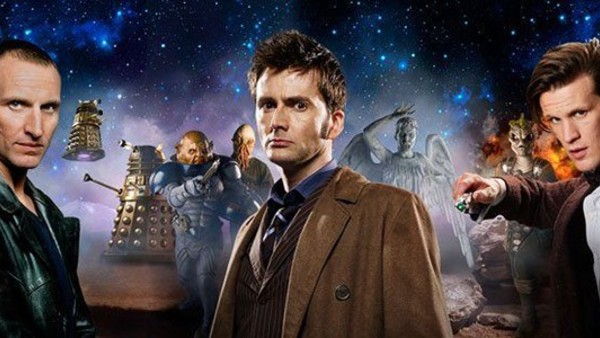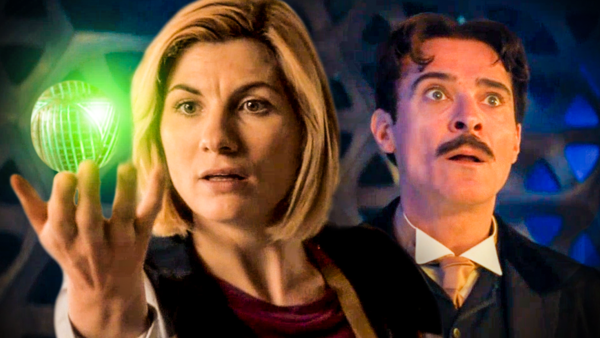Doctor Who: Best And Worst Story Of Each New Who Doctor
5 Doctors, 12 seasons and 3 showrunners - what is the best and worst of modern Doctor Who.

Doctor Who’s stellar 2005 return reinvigorated a show that, to many, had become a laughingstock and saw it launched to the heights of British television drama. Suddenly the show was being taken seriously by critics, winning awards, and reaching new levels of fandom it had never before experienced.
For the first time ever, the show began to gain serious popularity across the pond in the United States, peaking during the Eleventh Doctor’s era.
After a rocky start which saw the star of the show quit after a single season, the introduction of David Tennant as the Tenth Doctor provided the show with a huge boost and some mass-market appeal that it needed. Since then the show has been a mainstay of British television and has attracted guest appearances from incredibly well respected actors including Derek Jacobi, Ian McKellen and Richard E. Grant.
The role of The Doctor has also been taken on by some of the best British talent currently working; Eccleston, Tennant and Capaldi were all well-established actors in their own right when taking on the role and, though Smith and Whittaker may have been earlier in their careers when they started, they have proven themselves to be just as capable.
Through five different Doctors, nineteen different companions (depending on how you class companions) and three different showrunners, there’s bound to be some ups and downs. As such, here are the best and worst stories from each incarnation’s era of the series.
10. Thirteenth Doctor - Best: Nikola Tesla's Night of Terror

One of the biggest strengths of the Chibnall era of the show has been its historicals. Episodes like “Rosa” and “Demons of the Punjab” are emotionally engaging, well put together examinations of turbulent times in modern history – both dealing with themes that are every bit as relevant in today’s culture as they were in their respective times.
Whilst those two episodes are very good, they often don’t feel like Doctor Who stories. “Nikola Tesla’s Night of Terror” on the other hand is an excellent historical, showcasing the rivalry between Tesla and Thomas Edison and contrasting their approaches to their work, whilst also feeling like a Doctor Who episode. It is good to see a popular show finally address the fact that Thomas Edison’s biggest skill was actually his business acumen and not his talents as an inventor. Many of his famous creations were actually invented by others using funding he provided. He then registered the patents in his name.
There’s a wonderful, if brief, scene in which Tesla and Edison confront one another and each put forward their own philosophy’s. Tesla argues that the work is the most important thing, working for the betterment of humankind as opposed to profit. Edison rightly (even if it’s not pleasant) points out that nothing happens without financial backing and that business is a necessary evil in getting things done.
The episode eventually transforms into a classic base-under-seige story as an alien race known as the Skithra attempt to kidnap Nikola Tesla. The episodes weaves in a good but not overbearing amount of comedy into its historical drama along with a dose of good old Doctor Who sci-fi. The Skithra Queen is an interesting design and an interesting enough villain for Jodie Whittaker to play off in the episode. The way the Skithra Queen is ultimately defeated feels like the sort of clever trick we’ve come to expect from The Doctor and this is the best episode of Thirteen so far.